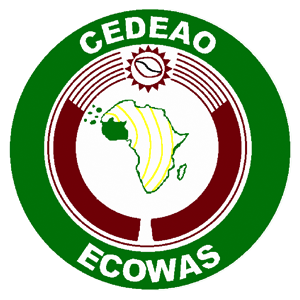In Guinea-Bissau, ECOWAS Parliament held a 3 Day Seminar on the Adoption of a Single Currency for Member African States
By Abdul Rahman Bangura-
NEW AFRICA BUSINESS NEWS (NABN) Freetown, Sierra Leone- Dialogues stood around the “Common Currency and Inter-bank Payment System as Promoters of Regional Trade by 2027”.
Tunis – the speaker of The ECOWAS Parliament said, they are venturing on these conversations simply, inter-regional trade is fairly in the sub-region, expanding into it accounts for just about 10% of the exports and imports in member states.
Various justifications have been observed for this. Crucial amongst these is the “lack of a single currency across ECOWAS member countries” which is asserted to be the crucial challenge and a condition that worsens marketing costs, according to Hon. Tunis.
He proceeded that having specified the challenges and attempted paths to boost the percentage of trade in the region, the seminar will deal with all other challenges and that they are assumed to attain a single currency by 2027.
He strengthened that, the seminar will provide Members of Parliament an alternative to debate the new road map provided by the ECOWAS Commission to the Authorities of Heads of State, make proposals, and provide suggestions ensuring the onset of the monetary union in 2027.
“In conducting this seminar, we intend to take advantage of the expertise of resource prices monetary ECOWAS Commission, West Africa Monetary Agencies(WAMA), West Africa Monetary Institute (WAMI), as well as additional specialists from the region who have worked mightily to generate high-quality report and researches on the single monetary process”, said Hon. Tunis.
He explained that the goods and services would be available, prices would reduce enormously, and beneficial regional trade would be improved if the single currency proposal evolves an accomplishment.
The President of Guinea Bissau and Chairman of ECOWAS Authority of Heads of State and Government, H E Umaru Sissoco EEmbal let out, the single currency will facilitate financial growth in ECOWAS member states.
The ECOWAS Parliament economic expert, Dr. Alhassan Idrissu, announced that the varied inflation norms and financial policies of different member states will be a tremendous challenge for member states to accomplish the single currency goal. He announced that two key confluence bars have been very complicated in fulfilling the fiscal deficit criteria which expect member nations to attain a fiscal deficit of three per cent or less of GDP and the inflation criteria. He said these have substantiated very difficult to achieve.
Additional problem he let out is the challenge relating to economic integration which glances at the discrepancies in national statutes that creates currency integration a little hard due to unlikeness in national business, trade, and investment legislations.
Other diplomats favored the motion for a widespread currency by 2027 and pledged mobilization in their respective countries to boost economic laws that support the system. Nevertheless, the Director of Brookings Global, Africa Growth Initiative, and former Vice President of Africa Development Bank, Aloysius Uche Ordu inferred in a blog: “An Evaluation of the single currency agenda in the ECOWAS region” that a single currency is necessarily not the solution for the region’s economic problems, referring to among others, the Eurozone, the IMF’s recent study of African monetary unions, in which simulations implied that the proposed financial integrations will give rise to net benefits to others, modest net gains for others, and sometimes net losses for others.
In 2022, ECOWAS announced that it was pushing the currency integration to 2027 because The The COVID-19 pandemic had blown, and nations were required to work on stabilizing, according to the then President of the ECOWAS Authorities of Heads of State and Government, Jean-Claude Kassi Brou. The single currency was to be inaugurated in 2020 after it was read and discussed, and its name “Eco” was approved during the body’s 55th Extraordinary Session in Abuja, Nigeria in 2019.
First, Anglophone countries – Sierra Leone, Ghana, Nigeria, Gambia, Liberia, as well as Guinea primarily raised interests in confluence norms.
For New Africa Business News (NABN) Abdul Rahman Bangura Reports, Africa Correspondent

